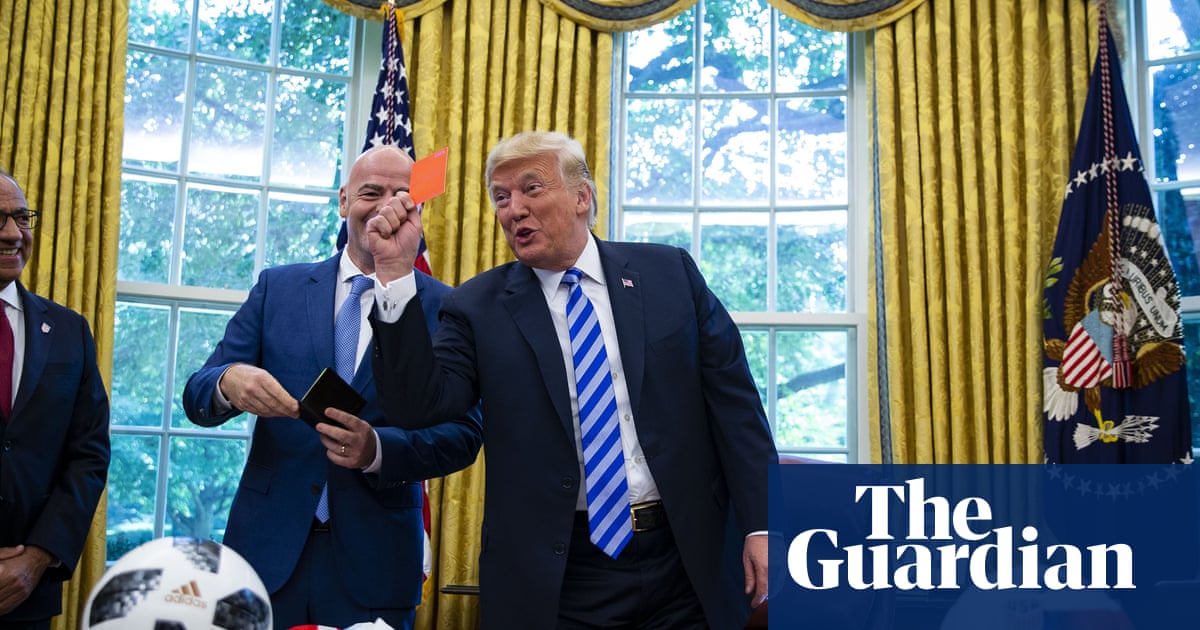Donald Trump’snewly signed travel bancontains an exemption that could apply to players, staff or associated families with clubs participating in the 2025 Club World Cup, 2026 Fifa World Cup or the 2028 Olympics.
The US president has signed a sweeping order banning travel from 12 countries and restricting travel from seven others, reviving and expanding the travel bans from his first term.
The nationals of Afghanistan, Myanmar, Chad, Republic of the Congo, Equatorial Guinea, Eritrea, Haiti, Iran, Libya, Somalia, Sudan and Yemen will be “fully” restricted from entering the US, according to the proclamation. Meanwhile, the entry of nationals of Burundi, Cuba, Laos, Sierra Leone, Togo, Turkmenistan and Venezuela will be partially restricted.
There is an exemption, however, outlined in section 4 of the order, which states that “any athlete or member of an athletic team, including coaches, persons performing a necessary support role, and immediate relatives, traveling for the World Cup, Olympics, or other major sporting event as determined by the secretary of state” are not subject to the ban.
A Fifa spokesperson declined to comment when asked if the governing body had lobbied for the exception’s placement. The Fifa president, Gianni Infantino, has gone out of his wayto appear publicly with Trumpin recent months, taking a seat next to the president at the first public meeting of his World Cup taskforce and arriving late to the Fifa Congress in order to meet with Trump during his tour of the Middle East.
It is also not clear whether the “World Cup” mentioned in the exemption applies to to both the 2026 World Cup involving international teams and the 2025Club World Cup, which will feature many of the world’s top club teams in venues across the US this year.
Also unclear is whether the ban will force US-based players who play internationally for countries subject to the ban to return from the currentFifainternational window early. Venezuela, for example, have three players on its squad who play in Major League Soccer. They are scheduled to play two World Cup qualifiers: one against Bolivia on Friday night and another against Uruguay on Tuesday. Trump’s travel ban is set to come into action on Monday 9 June.
Teams that have qualified for the Club World Cup currently employ 10 players from countries named in the travel ban. They are: Inter Miami’s Telasco Segovia (Venezuela), Botafogo’s Jefferson Savarino (Venezuela), Espérance de Tunis’s Roger Aholou (Togo), LAFC’s David Martínez (Venezuela), Internazionale’s Mehdi Taremi (Iran), Ulsan’s Matías Lacava (Venezuela), Al-Ain’s Kodjo Fo-Doh Laba (Togo), Josna Loulendo (Republic of Congo) and Mohamed Awadalla (Sudan), as well as Pachuca’s Salomón Rondón (Venezuela).
Only one country on the travel ban list, Iran, has already qualified for the 2026 World Cup. Venezuela are seventh in South American qualifying, five points behind Colombia for an automatic World Cup place but still in the picture to qualify via an inter-confederation playoff. Equatorial Guinea and Libya are mathematically still alive in African qualifying but unlikely to progress to the next round. Sudan are third in their World Cup qualifying group, just one point from automatic qualification. Haiti look good to reach the next round of Concacaf World Cup qualification.
